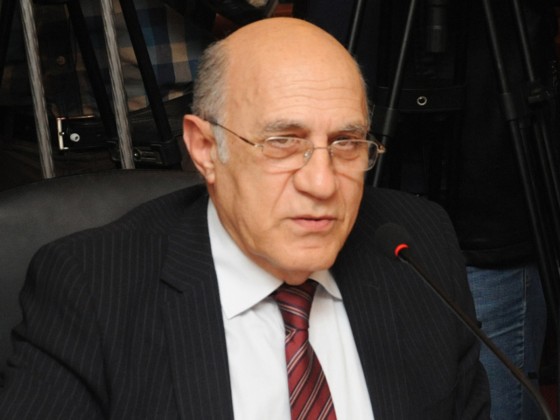
Baku, Azerbaijan, May 26
By Seba Aghayeva – Trend:
Tentative agreements, which could initiate the signing of a great peace agreement on the Armenian-Azerbaijani Nagorno-Karabakh conflict, may have been reached at the talks in Moscow between the foreign ministers of Azerbaijan and Russia, Fikrat Sadikhov, the political scientist, professor of Azerbaijan’s Western Universiy, told Trend.
He was commenting on the results of the Azerbaijani Foreign Minister Elmar Mammadyarov’s visit to Russia.
Sadikhov in particular said that in this context it is very important that Moscow exerts pressure on its military-political ally, Armenia, otherwise, waiting for a political result would be simply illogical.”
However, as Sadikhov said, certain progress is being felt in the mutual understanding between the two countries.
“Russia understands Azerbaijan’s value as a key player in the region, an important partner, with which it is beneficial to cooperate,” he said.
Mammadyarov himself told the Russia 24 channel that the main topic of his discussions with Sergey Larvov was a clear desire to of the Russian Federation to get the Armenian-Azerbaijani Nagorno-Karabakh conflict off the ground.
“Mammadyarov’s visit and his meetings with his Russian counterpart, in principle, correspond to the format of the current Azerbaijani-Russian relations,” Fikrat Sadikhov said.
"Today the relations show that the partnership in many areas has good dynamics,” he said. “Both countries want these bilateral relations to be in the interests of each of the two countries. It is clear that the Nagorno-Karabakh conflict remains the key problem for Azerbaijan. The reality is that much depends on Russia, the main military and political ally of Armenia.”
This is understood not only in Baku, capitals of other European countries, but also in Moscow, he said.
The expert added that in this aspect, the visits of Azerbaijani officials and their negotiations with the representatives of Russia’s political elite are of great importance.
The format of meeting of Azerbaijani and Russian foreign ministers is that diplomatic format which envisages the settlement of the most difficult key problems within bilateral relations, Sadikhov said.
Azerbaijani foreign minister’s visit to Russia is important also because it took place immediately after the Riga summit of the Eastern Partnership, according to the expert.
“During the summit, Azerbaijan clearly expressed its position, expressed dissatisfaction with some paragraphs of the declaration that was adopted following the summit and showed an independent position,” he said.
Azerbaijan made it clear that it has an independent policy and its territorial integrity is the key problem of the country’s entire foreign policy activity, he added.
“I believe that it was heard and well understood in Moscow and now, conclusions should be made,” Sadikhov said.
The expert added that this should be a basis for progress in the settlement of the Nagorno-Karabakh conflict.
The conflict between the two South Caucasus countries began in 1988 when Armenia made territorial claims against Azerbaijan. As a result of the ensuing war, in 1992 Armenian armed forces occupied 20 percent of Azerbaijan, including the Nagorno-Karabakh region and seven surrounding districts.
The two countries signed a ceasefire agreement in 1994. The co-chairs of the OSCE Minsk Group, Russia, France and the US are currently holding peace negotiations.
Armenia has not yet implemented the UN Security Council’s four resolutions on the liberation of the Nagorno-Karabakh and the surrounding regions.
Riga summit of the EU Eastern Partnership was held on May 21-22. The declaration text did not say that the Nagorno-Karabakh conflict should be resolved based on the international law, in particular, in accordance with the resolutions of the UN Security Council. Azerbaijan, in turn, presented its remarks on the declaration of the Riga summit of Eastern Partnership.
Eastern Partnership envisages the political association and economic integration of the EU with Azerbaijan, Armenia, Belarus, Georgia, Moldova and Ukraine. The last three countries signed an agreement on associated partnership with the EU in 2014.
Edited by SI
—
Follow the author on Twitter: @Asebaa
Trend
